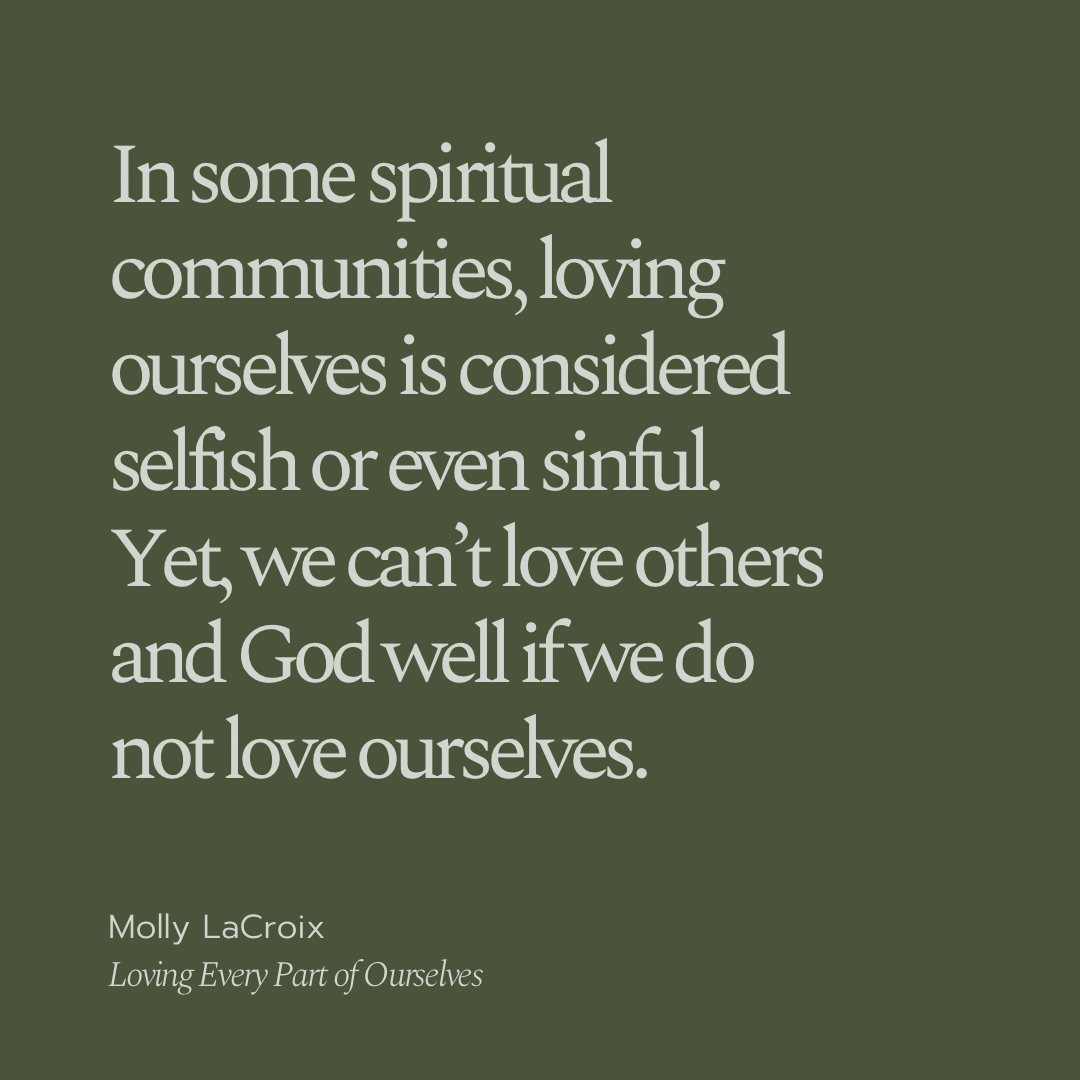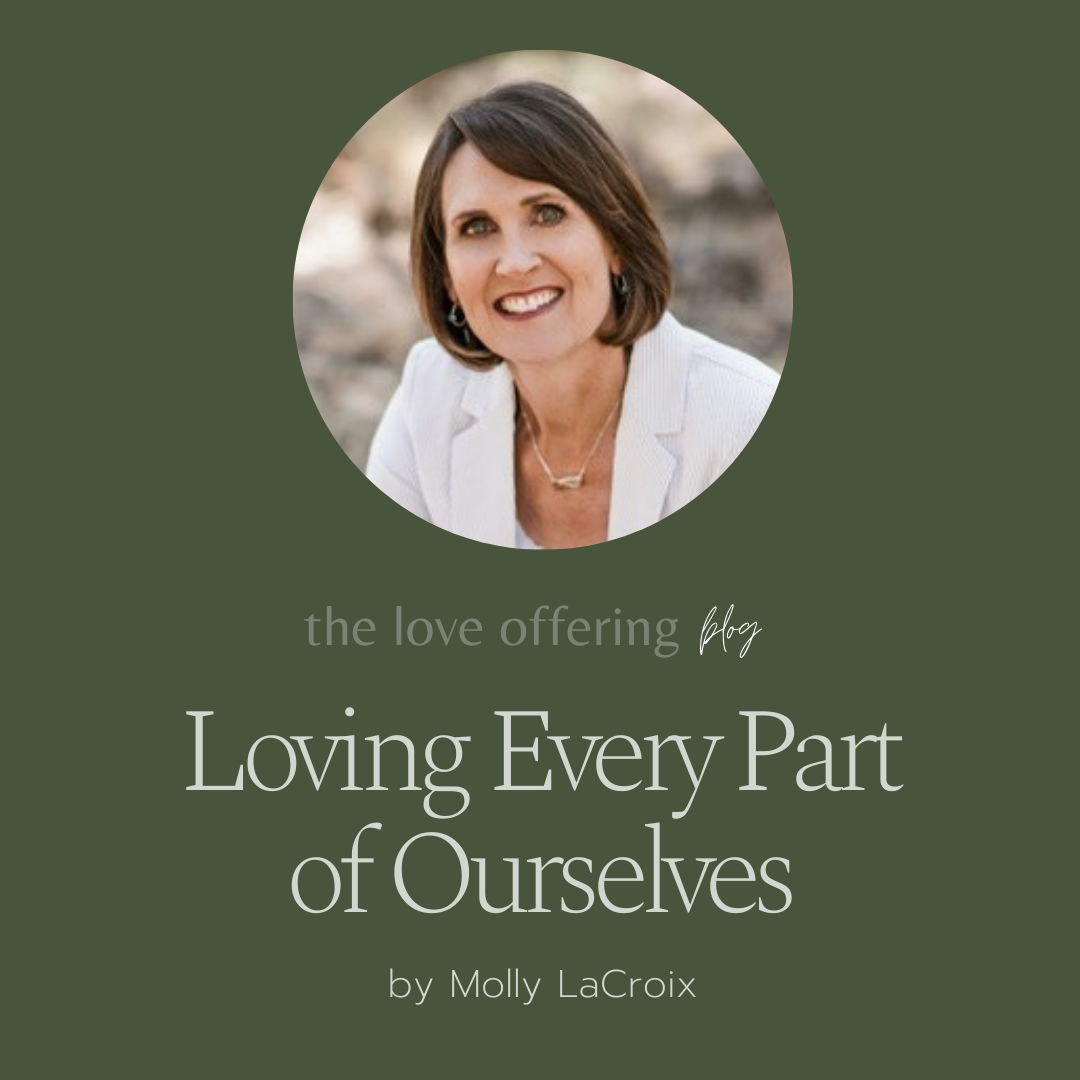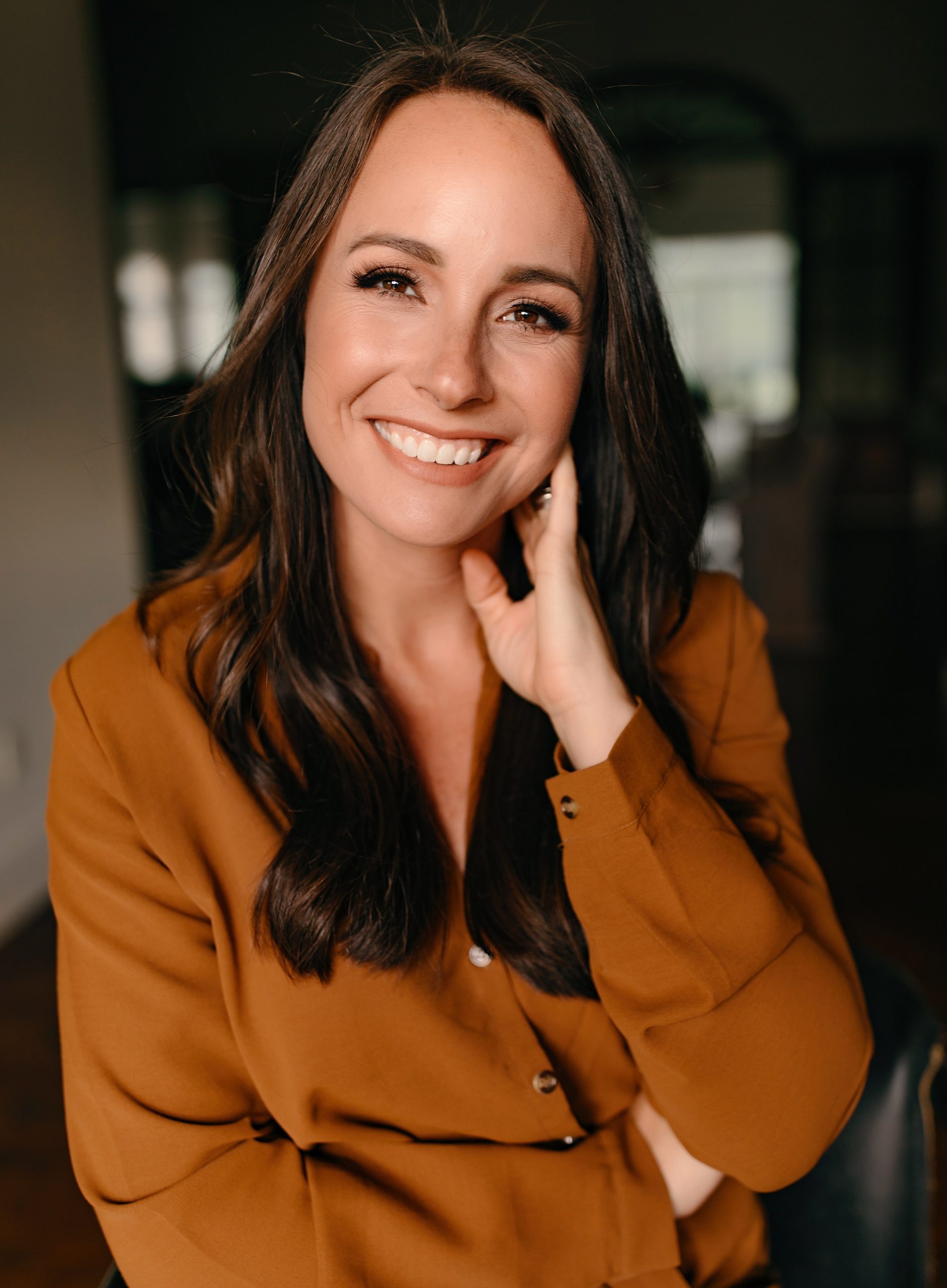Did you know that the verse at the center of the Torah—the first five books of the Bible that were the heart of spiritual life for Israel—is “love your neighbor as yourself” (Leviticus 19:18, NIV)? When the religious leaders asked Jesus, “What is the greatest commandment in the Law?” he said, “Love the Lord your God with all your heart and with all your soul and with all your mind…and love your neighbor as yourself” (Matthew 22:37-39, NIV).
The Great Commandment, which I like to think of as the “Great Vision” for our lives, is the heart of our faith.
But, how often do you hear the Great Commandment as, “Love God and others,” leaving out the part about loving ourselves?
In some spiritual communities, loving ourselves is considered selfish or even sinful. Yet, we can’t love others and God well if we do not love ourselves.

In my work as a therapist, I have seen how adverse experiences—which range from the universal experience of misattuned caregivers all the way across the spectrum to trauma—constrain our ability to love ourselves, others, and God because they leave a residue of doubt about our worth.
Myriad experiences, including parents who are well-intentioned but do not meet a child’s needs, harsh criticism by an authority figure, and feeling like an outsider, burden us with painful emotions and distorted beliefs. The earlier these events occur, the less likely we are to be able to process them, so we hold on to feelings of shame, terror, and grief along with beliefs such as, “I’m unlovable,” or “I’m worthless,” or “I’m not good enough.”
These burdens threaten our ability to function well. Think of a time when distressing emotions or beliefs flooded you; it’s distracting and disorienting. Because burdens threaten well-being, we have a God-given ability to adapt to the impact of adversity: parts of us take on protective roles to avoid or numb pain.
Rather than living from love—expressed as curiosity, connection, compassion, and other God-given resources—love is constrained by a combination of pain and protective strategies.
We find ourselves joining the Apostle Paul’s lament: “I do not understand what I do. For what I want to do I do not do, but what I hate I do” (Romans 7:15, NIV).
To love ourselves, others, and God with an open heart, we must start by befriending the protective parts of ourselves. When we notice that fear rather than love drives our actions, we can turn our attention to a protector and ask, “How are you trying to help me?” As we build relationships with them, they learn to trust the presence of love.
The web of loving relationships envisioned by God extends inside to a web of relationships among the various parts of you, all of whom are meant to contribute something vital to the unique person God created you to be. Offering love to them is an essential practice that will shift your ability to love God and others well.
About the Author:
Molly is a licensed marriage and family therapist specializing in treating the impact of trauma and adversity. She earned a master’s in marriage and family therapy from Bethel Seminary San Diego, where she returned as an adjunct professor. Molly is a Certified and Level Three-trained Internal Family Systems (IFS) therapist and clinical consultant. Her books Restoring Relationship: Transforming Fear into Love Through Connection and Journey to Shalom: Finding Healing, Wholeness, and Freedom in Sacred Stories integrate IFS and Christian spirituality. Learn more about Molly at https://mollylacroix.com.
Connect with Molly:
Facebook and Instagram: @mollylacroixlmft





